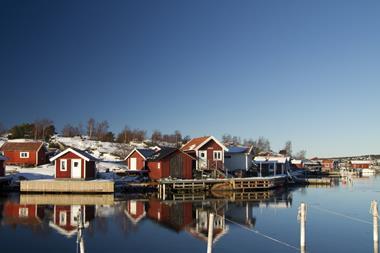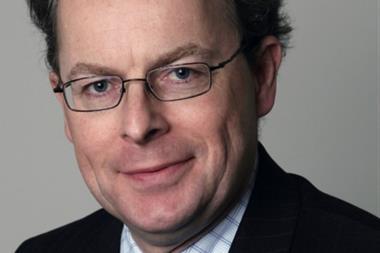A pension fund reviewing their custody arrangements today after, say, a five year stint using their current provider, might not only be served by a different name from the one they started with, but is also reviewing a market that has quite literally changed beyond recognition.
In a rapidly shrinking sector in terms of players, the variables on the technology, reporting and settlement sides, as well as the sheer ability to deal globally, appear to be proliferating like crazy. For pension fund managers, an important decision has also become a relatively tough one.
David White, treasury manager at the UK £1.4bn (E2.3bn)BOC pension investment fund, says the group appointed Northern Trust in November 1998 following a head to head with Chase.
He says the decision to go for a global custodian came largely because of the number fund managers exiting the custody business. “We really didn’t want to be in a position where we couldn’t change fund managers because they hadn’t got custodians.”
White says Northern was selected for its passport service giving access to the fund’s portfolios instantly on line, which he notes is: “Very user friendly.”
He adds: “We wanted a custodian and first and foremost it was absolutely vital that they were good at providing custody. However, we were in the unusual position of already keeping parallel in-house investment accounting records of our fund managers.
“It was a long term aim to transfer these records over to Northern Trust, but we’re not actually that much closer to abandoning our in-house records.”
He believes the problem is that most of Northern’s accounting provision is in the US: “For things like derivatives it doesn’t actually help us very much. They are extremely responsive and try to help, but it doesn’t always add up to anything practical, unfortunately.
“In general, I think we have a good value service with efficient custody.”
The fund uses little in the way of value added services, which White says is due to a bar the scheme puts on fund manager stock lending:“ We do commission recapture but use Frank Russell for this service. With Northern, it’s really custody and tax regulations we concentrate on,” says White.
And he adds that it is not impossible that BOC would use Northern for the custody of its US pension fund also, but that the issue has not been broached yet. However, he feels the concentration of custodians in the market is slightly worrying.
“One issue, I think, is that if you’re any good in the investment management industry you’re not going to stay in the custody business for very long, because it is not very exciting. The tendency, also, is that if you squeeze a few people out of the market the fees will eventually go up.”
Cees Willemsen, managing director at the Rotterdam based e550m pension fund for Internatio-Müller, says the fund uses Dutch player MeesPierson as global custodian, as well as for its securities lending programme. “They also check the mandates of our external investment managers.
“We are fairly satisfied with what we get, but they do make mistakes and there is some negligence. I think this is just human error.”
And Willemsen sees the custody market becoming more convoluted in the future: “I think it is going to be difficult and will depend on packages with special factors such as liquidity control. It might also be difficult to keep track of securities.”
Looking at the Dutch market, he points out that often the Dutch players are in fact cheaper than the US players: “It could be that they have cheaper overheads, but really for us quality is the prime issue.”
Daniel Dubach, chief investment officer at the Baden based SFr5.7bn (E3.6bn) ABB Versorge AG – the investment service organisation for the ABB investment foundation in Switzerland, which pools pension assets for third parties – says they employ Julius Bär in Zurich as global custodian – a role they have held for five years. “The main aspect in the relationship is that they have very close contact with us and we have a dedicated team working especially for us. Also, they are not far away and this is an essential point. The custodian has to be local and know the legal environment for Swiss pension funds. It is not possible to be served out of the US or UK, for example.”
Dubach says Swiss regulations to be addressed include the law on investment limits and compliance, stamp duty and tax issues. And he points to the risk factor of switching custody arrangements: “If we considered changing custodian, there is always the cost question, but also the weighting of new risk against what you have already.”
The issue of ever-advancing technology, however, is prime in how Dubach sees the future market. If you compare Julius Bär, which is a relatively small local/global custodian then they do not have the technological power to compete with the big international players. “But they are able to catch up. Certainly we are keeping an eye on these developments, but for the time being we are more or less pleased with what we have.”
All funds in the ABB pool have to go through the same custody arrangement for efficiency and Dubach says value-added services used include securities lending, as well some fixed-income services.
Fees, he claims, are also a tough topic to address: “Custody is not an open market where we know exactly which service costs what. It is a grey zone and the question is what is packaged into a service and what is not. We need an in-depth study of the services that will be provided to us.
“Another issue is whether the custodian is really able to do a proper settlement. If that doesn’t work, you can’t build a proper reporting system on top of it.”
Karel Stroobants at the e552m, Brussels based VKG/CPM pension fund for doctors and dentists, has had a custody contract with State Street since 1995.
He explains the reasons firstly for selecting a global custodian:“We decided to keep asset allocation in our own hands and do this in a very specialist style which means we have arrived at 11 fund managers.
“There are two ways then that you can manage this. Either you go for a global mutual funds approach or you get a global custody arrangement which gives the right kind of service in end reporting.”
Having gone the custody route, Stroobants says the next question was the definition of ‘global’. “For us, it means pure custody, tax reclaim, dividend collection, stock splitting, full accounting, performance analysis and attribution, risk analysis and securities lending – and this is all integrated! The added-value here is that we receive the total reporting from one central point. The only thing I then need from my managers is commentary, because I have all the details from the custodian.”
He says the fund receives a monthly NAV – through choice, but has real time access to portfolios, which he describes as a ‘powerful tool’ for screening the total database.
VKG/CPM is currently reviewing its custody set-up, and Stroobants notes that the contract has evolved in terms of fee levels to a flat fee for total service. “We are now looking at this closely because the fund has tripled in size since the contract began.”
However, he is unphased by the review process and points out various comparison avenues: “We belong to the CEM database in Holland and are receiving our first custody reports about cost analysis compared to the US peer group.
“I will use this data to build up my file for negotiation with the custodian. It is not that much different from negotiating with a supplier really – if you’re quite dependent in this area and do custody like we do, then you need open calculations.”
Stroobants believes the market shrink could now be at its minimum looking at the ‘truly’ global players. “There is a danger there, of course, in the lack of players, but you have to be really big in this game to give good overall service.
“With a good global custodian, in five minutes I can have details on any aspect of my portfolio and know exactly which stock is in there. This includes the relative weighting and the ongoing transactions, trading costs and analysis from which I can monitor my managers. The main thing here is the independence we get.”
And he flags up what he sees as the challenges going forward: “I think there is an ongoing challenge in technology, know how and timely delivery of data. There’s no way the local custodians can compete here. For example, in Belgium, there is in no way a competitor in the market. Fortis is making some effort and there might be some room for business with the smaller pension funds.”
Certainly, those that say custody has become a wearisome utility in the investment chain may well want to go and explain themselves to pension funds faced with increasingly complex decisions as to where they can source quality at the custody coal face.










